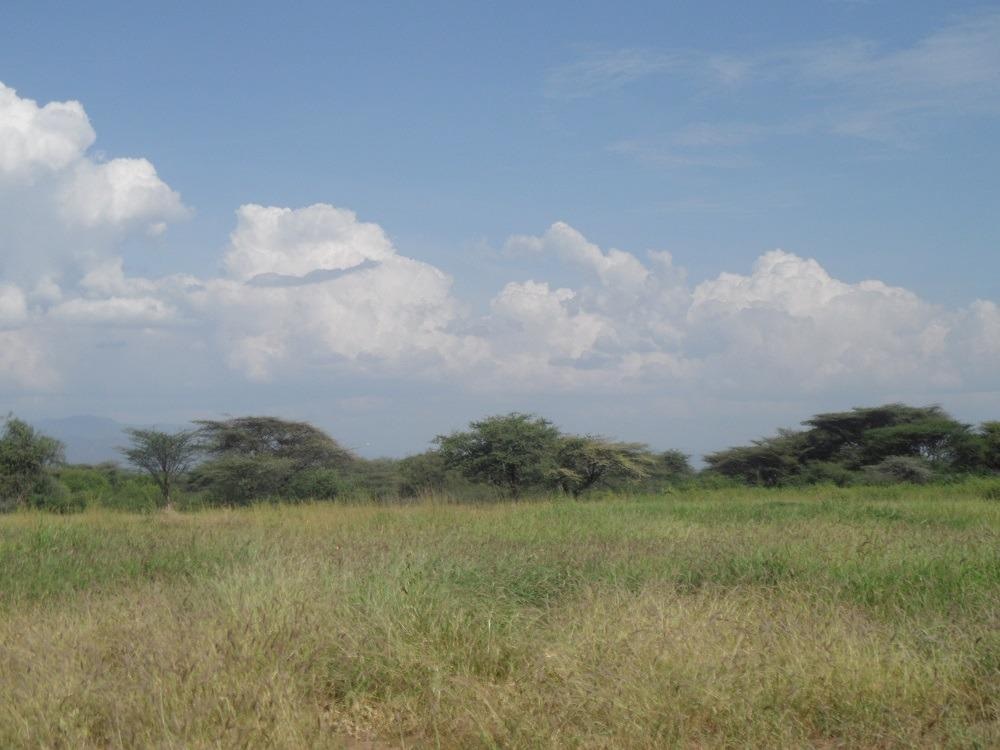Nov 25 2020
A recent study showed how, contrary to encroachment by the invasive alien tree species Prosopis julifora (referred to as “Mathenge” in Kenya or “Promi” in Baringo), the revival of grasslands in tropical semi-arid areas can alleviate the effects of climate change as well as restore important benefits typically provided by healthy grasslands for agro-pastoralist and pastoralist communities.
 A restored grassland in Baringo County. Image Credit: Ms. Purity Rima Mbaabu.
A restored grassland in Baringo County. Image Credit: Ms. Purity Rima Mbaabu.
A team of Kenyan and Swiss researchers, including lead author Ms. Purity Rima Mbaabu—associated with Kenya Forestry Research Institute, Institute for Climate Change and Adaptation of the University of Nairobi, and Chuka University—and Dr. Urs Schaffner from CABI’s Swiss Centre in Delémont measured how invasion by P. julifora and the restoration of deteriorated grasslands impacted soil organic carbon (SOC), fodder availability, and biodiversity.
Published in Scientific Reports, the study showed that the degradation of grasslands in Baringo County, Kenya, has resulted in a loss of about 40% of SOC, the most crucial carbon pool in soils. These results prove that grassland degradation considerably contributes to the emission of greenhouse gases and, therefore, to climate change.
The authors also revealed that three decades of grassland restoration replaced SOC to a soil depth of 1 m at a rate of 1.4% each year and restored herbaceous biomass to levels of pristine grasslands, although plant biodiversity stayed low. Invasion by P. julifora, on the other hand, improved SOC mainly in the upper 30 cm of the soil and inhibited herbaceous plants.
Grasslands constitute 40% of the Earth’s natural vegetation and include a considerable quantity of the world’s SOC. Besides supporting the revenue source of more than one billion people around the world, they are home to a wide range of plants and animals and support other ecosystem services, for example, forage for livestock production, regulation and storage of water flows, and tourism.
But grasslands are under extreme threat from conversion to other land uses, degradation, and encroachment by P. julifora, which has resulted in the disappearance of more than 30% of grasslands in Baringo County.
The researchers note that efforts to turn around land degradation in Baringo County and other parts of Sub-Saharan Africa should look into restoration of historical grasslands and their related ecosystem services. To fulfill the requirements for wood, the planting of native trees should be supported on land, which is traditionally forested in general.
The importance of managing grasslands to optimise carbon sequestration for climate change mitigation is widely recognised. Soils are the largest terrestrial carbon reservoir containing more carbon than the vegetation and the atmosphere combined.
Purity Rima Mbaabu, Lead Author, Kenya Forestry Research Institute
“Yet, soil organic carbon, which makes up about two-thirds of global soil carbon, is sensitive to land degradation with significant negative consequences for soil quality and productivity and an exacerbation of greenhouse gas emissions,” added Ms. Mbaabu.
Halting and reversing land degradation and restoring degraded soils and their associated services in rangelands is essential for climate change mitigation and for ensuring resilient agro-ecological systems that underpin sustainable rural livelihoods and that meet medium to long-term sustainable development objectives such as the 2030 global sustainable development goals (SDGs) and Africa’s Agenda 2063.
Daniel Olago, Professor, Institute for Climate Change and Adaptation, University of Nairobi
Olago added, “The current choices on how to manage our soil resources will have wide-ranging consequences for human wellbeing for generations to come.”
Our results provide evidence that the replenishment of the soil organic carbon stocks through restoration of degraded grasslands can be achieved within 20-30 years and does not lead to multiple trade-offs with fodder for livestock and other ecosystem services.
Dr Urs Schaffner, CABI’s Swiss Centre
“The extent to which grassland restoration will increase primary productivity and soil organic carbon, however, will depend on socioeconomic factors including land tenure systems and enforcement of land use rights affecting the level and type of grazing management,” concluded Dr. Schaffner.
In the early 1980s, Prosopis was brought into Baringo County during the Fuelwood Afforestation Extension Project, which intended to alleviate firewood scarcity and desertification. However, quickly after its introduction, Prosopis began to escape from the plantations and enter into the adjacent ecosystems.
Currently, the costs of Prosopis and other invasive shrubs and trees, such as Chromolaena odorata and Lantana camara, in South Africa alone are estimated to be US$1 billion annually.
Journal Reference:
Mbaabu, P. R., et al. (2020) Restoration of degraded grasslands, but not invasion by Prosopis juliflora, avoids trade-offs between climate change mitigation and other ecosystem services. Scientific Reports. doi.org/10.1038/s41598-020-77126-7.
Source: https://www.cabi.org